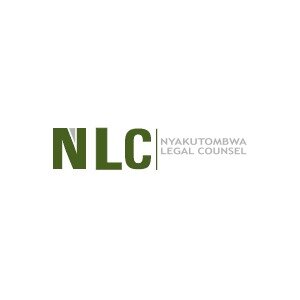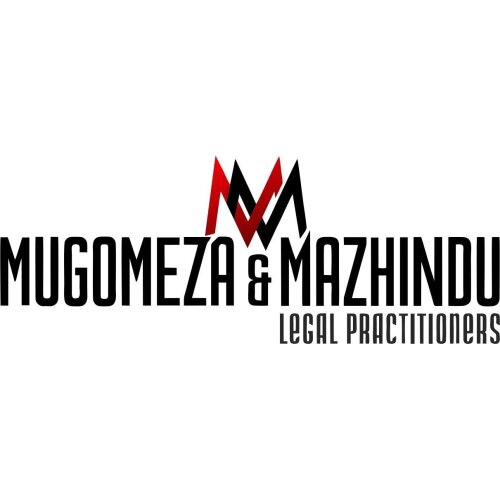Best Business Lawyers in Harare
Share your needs with us, get contacted by law firms.
Free. Takes 2 min.
List of the best lawyers in Harare, Zimbabwe
About Business Law in Harare, Zimbabwe
Harare, the capital city of Zimbabwe, serves as the economic hub of the country, playing host to a vibrant and diverse business environment. The city boasts a mix of corporate and small to medium enterprises (SMEs) across various industries, including agriculture, mining, retail, and financial services. Business law in Harare encompasses a range of legal disciplines including corporate law, contract law, employment law, intellectual property, tax law, and real estate law. Understanding these legal areas is crucial for anyone engaging in business activities in Harare as they navigate the complexities of establishing and operating a business within the city.
Why You May Need a Lawyer
There are several situations where seeking legal advice for business in Harare may be essential:
- Business Formation: Guidance on selecting and establishing the appropriate legal structure for your business, such as a sole proprietorship, partnership, or limited company.
- Contract Drafting and Negotiation: Assistance with drafting, reviewing, and negotiating contracts to ensure your interests are protected.
- Dispute Resolution: Legal representation in the event of disputes with partners, employees, suppliers, or customers.
- Compliance: Ensuring adherence to Zimbabwean regulations and laws to avoid potential penalties or legal issues.
- Intellectual Property: Protecting your business's inventions, brands, and creative works.
- Taxation: Navigating the complexities of Zimbabwe's taxation system to optimize your tax liabilities.
- Employment Law: Addressing employee relations issues and implementing compliant employment practices.
Local Laws Overview
The legal framework governing business operations in Harare is influenced by several statutes and regulations, some of which include:
- Companies and Other Business Entities Act: This act regulates the formation, operations, and dissolution of companies.
- Labour Act: Governs the relationship between employers and employees, addressing contracts, termination, and worker rights.
- Income Tax Act: Provides the guidelines for taxation on earnings from business activities.
- Industrial Designs Act: Protects industrial designs and outlines the frameworks for registration.
- Competition Act: Aim to prevent anti-competitive practices and promote fair competition within the market.
Frequently Asked Questions
1. What is the process for registering a business in Harare?
To register a business, you must file with the Registrar of Companies, choosing a business structure, submitting the relevant forms, and paying the applicable fees.
2. What types of business entities can be formed in Zimbabwe?
Common entities include sole proprietorships, partnerships, private limited companies, and public limited companies.
3. What is the role of the Zimbabwe Revenue Authority (ZIMRA)?
ZIMRA administers and collects taxes and duties, offering guidance on tax-related matters for businesses.
4. Are there incentives for small businesses in Harare?
Yes, there are several incentives, especially for startups and SMEs, aimed at promoting entrepreneurial activities.
5. How can I protect my intellectual property in Harare?
Intellectual property can be protected by registering trademarks, patents, and copyrights through the Zimbabwe Intellectual Property Office.
6. What employment regulations should I be aware of?
Key regulations include employment contracts, fair labor practices, minimum wage laws, and health and safety standards.
7. How are commercial disputes resolved?
Commercial disputes can be resolved through arbitration, mediation, or litigation in Zimbabwe's courts.
8. What are the tax obligations for businesses?
Businesses must adhere to obligations such as income tax, value-added tax (VAT), and PAYE for employee salaries.
9. Is foreign investment encouraged in Harare?
Yes, the Zimbabwean government offers incentives to attract foreign investment while maintaining certain localization and compliance standards.
10. How does one wind up a company in Harare?
The winding-up process involves liquidating the company's assets, settling debts, distributing remaining assets, and deregistering the business.
Additional Resources
For legal assistance and further information, consider consulting the following resources:
- Zimbabwe Investment Authority - for guidance on investment and establishment requirements.
- Zimbabwe Revenue Authority (ZIMRA) - for detailed tax guidance and compliance.
- Ministry of Justice, Legal, and Parliamentary Affairs - for statutory regulations and legal framework guidance.
- Zimbabwe Chamber of Commerce - for networking and business support.
Next Steps
If you're seeking legal assistance in business, it's advisable to:
- Conduct Initial Research: Ensure you have a basic understanding of the legal area related to your needs.
- Select a Competent Lawyer: Look for a lawyer or law firm specializing in business law with a solid reputation and credentials.
- Prepare Documentation: Gather all relevant documents and information related to your business issue before your consultation.
- Schedule a Consultation: Arrange a meeting to discuss your needs and objectives, and understand the legal pathways available.
- Review Terms: Review any fee arrangements or engagement letters before committing to ensure transparency in billing.
Lawzana helps you find the best lawyers and law firms in Harare through a curated and pre-screened list of qualified legal professionals. Our platform offers rankings and detailed profiles of attorneys and law firms, allowing you to compare based on practice areas, including Business, experience, and client feedback.
Each profile includes a description of the firm's areas of practice, client reviews, team members and partners, year of establishment, spoken languages, office locations, contact information, social media presence, and any published articles or resources. Most firms on our platform speak English and are experienced in both local and international legal matters.
Get a quote from top-rated law firms in Harare, Zimbabwe — quickly, securely, and without unnecessary hassle.
Disclaimer:
The information provided on this page is for general informational purposes only and does not constitute legal advice. While we strive to ensure the accuracy and relevance of the content, legal information may change over time, and interpretations of the law can vary. You should always consult with a qualified legal professional for advice specific to your situation.
We disclaim all liability for actions taken or not taken based on the content of this page. If you believe any information is incorrect or outdated, please contact us, and we will review and update it where appropriate.
Browse business law firms by service in Harare, Zimbabwe
Harare, Zimbabwe Attorneys in related practice areas.















